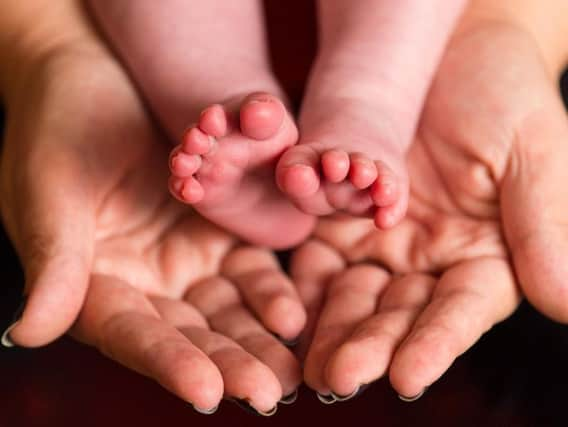Complex births mean more than one in three mothers need help at Calderdale and Huddersfield NHS Foundation Trust


The Royal College of Midwives has warned increasing levels of obesity and the rising age of mothers are leading to more complex births in England.
In December last year, 381 births were recorded at Calderdale and Huddersfield NHS Foundation Trust, NHS figures show.
Advertisement
Hide AdAdvertisement
Hide AdAround 136 of them - or 36 per cent - required some form of intervention from doctors or midwives .
Instrumental deliveries, when forceps or a vacuum extractor are used to pull the baby out, accounted for 50 births.
Women who have an instrumental delivery have a higher chance of more serious vaginal tears, incontinence and blood clots, according to the NHS.
Doctors also carried out pre-planned caesarian sections 35 times, and emergency caesarians on 50 occasions.
Advertisement
Hide AdAdvertisement
Hide AdThis means C-sections accounted for about 22 per cent of births at the trust.
C-sections can pose a number of risks, and are usually only carried out if the safety of the mother or baby is at risk.
The World Health Organisation says it would only expect the method in up to 15 per cent of births, if it is performed when medically necessary.
Across England, the proportion of unassisted births has fallen from 63 per cent in 2007-08, to 58 per cent in 2017-18.
In December, C-sections were used in 30 per cent of births.
Advertisement
Hide AdAdvertisement
Hide AdMandy Forrester, from RCM, said the trend could be down to women with complex health problems becoming pregnant.
"We’re seeing more women with obesity, diabetes and hypertension, which makes pregnancy and delivery more complex," she said.
"It’s definitely a demand on resources. It’s a different way of working with women, and there’s more machinery to look after.
"Women with more complications may come into hospital more, too, which takes up more time.
Advertisement
Hide AdAdvertisement
Hide Ad"We need to be aware of the trend, and make sure women have all the information they need to make the right decision for them."
Women who attended their first scan at Calderdale and Huddersfield NHS Foundation Trust in December were aged 29 years old on average, lower than the national average of 30.
Of those who had their Body Mass Index recorded, 28 per cent were overweight and 20 per cent were obese.
Across England, more than half of pregnant women were overweight or obese.
Advertisement
Hide AdAdvertisement
Hide AdJacqueline Dunkley Bent, NHS England's chief midwife, said: “The absolute priority for mums-to-be, and their midwives and doctors, is the safety of new parents and their baby.
"As more women with complex conditions can now give birth safely, it’s vital that everyone gets personalised care, and can make informed choices about birth, whatever their preference and medical needs."